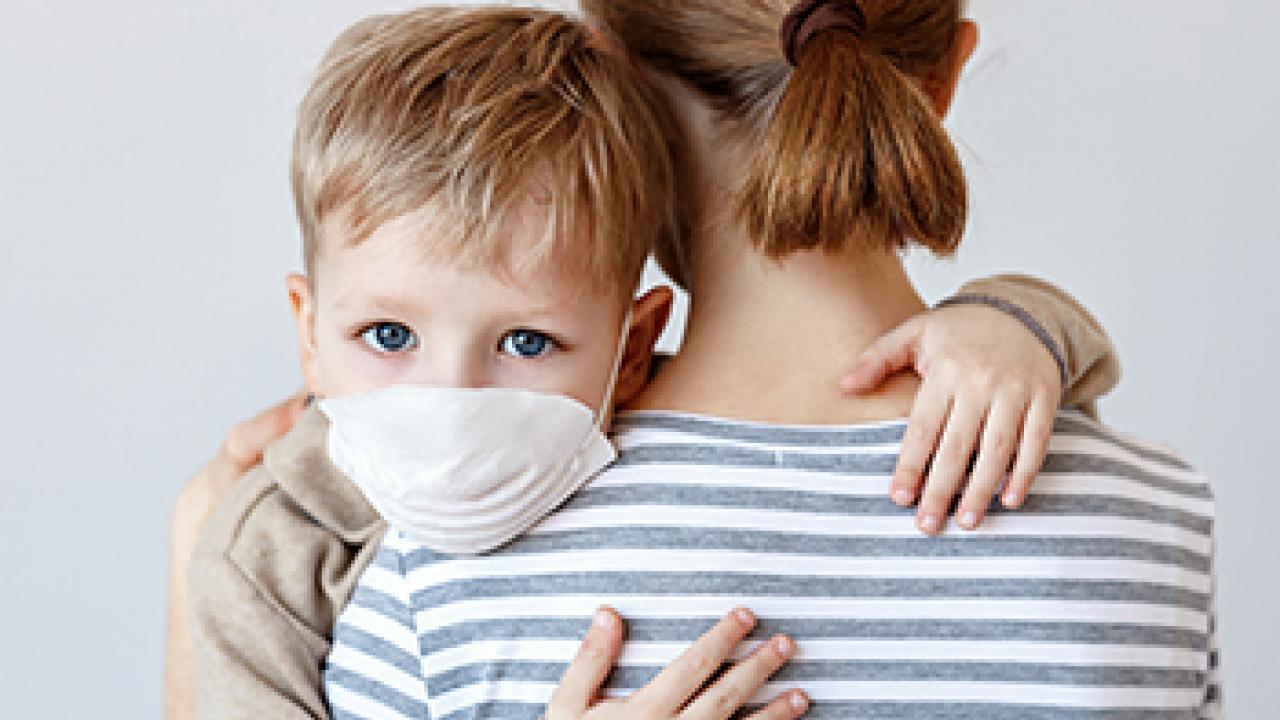
Troubling COVID-19 syndrome identified in children
UC Davis Children's Hospital researches illness in kids similar to Kawasaki disease
(SACRAMENTO) — If there’s some good news in the novel coronavirus pandemic, it’s that children have been far less susceptible to it. When children have become infected, the vast majority have mild symptoms. Worldwide, children younger than 10 years make up only 1% of COVID 19 cases. However, a newly identified and severe inflammatory syndrome – similar to Kawasaki disease ̶ has been linked to the coronavirus causing COVID-19 in about 200 children in the United States and Europe.
UC Davis Children’s Hospital is part of the Pediatric Emergency Research Networks (PERN). It is one of the sites for a global study about COVID-19 in children. Pediatric experts are focusing on the risk factors that may lead to more serious forms of the disease, including a condition the Centers for Disease Control and Prevention (CDC) is now calling “multisystem inflammatory syndrome in children.”
“What’s troubling about this syndrome in children is that instead of targeting the lungs as does the coronavirus infection in adults and sometimes older children, it causes inflammation throughout a child’s body and can even attack the heart,” said Nathan Kuppermann, professor and chair of emergency medicine and one of UC Davis’ principal investigators.
This new form of COVID-19 has been compared to toxic shock syndrome and a very uncommon childhood illness called Kawasaki disease. It is described as “Kawasaki-like” in a recent article in the journal The Lancet. Physicians say the new syndrome seems to affect the heart more frequently than typical Kawasaki disease and has been identified mainly in school-aged children rather than infants or toddlers.
Fortunately, UC Davis Children’s Hospital has seen only a few pediatric COVID-19 cases. None have been as severe as what other parts of the country and world have seen.
With limited information about risk factors, treatments and outcomes, the CDC has asked providers like UC Davis Health to closely watch for suspected cases.
“Children with this syndrome will likely have a persistent fever and a variety of inflammatory signs and symptoms, including cardiac, gastrointestinal, rashes and respiratory problems,” said Satyan Lakshminrusimha, professor and pediatrician-in-chief of UC Davis Children’s Hospital. “What we also know is that this condition can begin weeks after a child is infected with the coronavirus that causes COVID-19. Parents may not even know their child had been infected, which makes it especially challenging.”
To aid pediatric health providers in what to look for with their patients, Lakshminrusimha helped create an infographic that highlights unique signs and symptoms of the disease in children.
Both he and Kuppermann said their care teams are watching closely for any young patients suffering from fever, red eyes, rash and abdominal pain. The illness can progress rapidly to problems affecting the heart. The syndrome has caused what’s known as myocarditis. It affects the heart's ability to pump and causes rapid or abnormal heart rhythms.
“Kawasaki disease can affect the heart. But from what we understand in these severe but rare Kawasaki-like cases, there is a much higher frequency of cardiac problems and other critical inflammatory issues that frequently lead to low blood pressure and shock,” Kuppermann noted.
For severe and critical cases of pediatric patients with COVID-19, treatment may include management of pneumonia, respiratory failure, sepsis or septic shock, and secondary bacterial infection. These young patients may face a long hospitalization.
“Because this is so new, it’s been called the ‘mystery disease’ by some people,” Lakshminrusimha said. “The condition appears much more prevalent in children than that it was before the pandemic. However, is still very uncommon.”
UC Davis Children’s Hospital recently treated several patients with the Kawasaki-like illnesses, but testing did not show any association with the coronavirus that causes COVID-19.
“But we’re prepared for it,” added Lakshminrusimha. “It’s all part of the crucial pandemic research that will advance our clinical understanding about the preventive, diagnostic and therapeutic strategies for various conditions related to COVID-19 in children.”